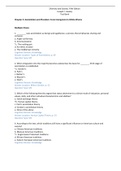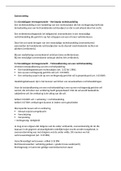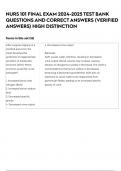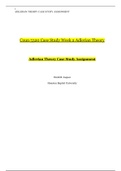Exam (elaborations)
Diversity and Society- Race, Ethnicity, and Gender 5th Edition by Joseph F. Healey , Andi Stepnick Test Bank
- Course
- Test Bank
- Institution
- Southern State Community College
Looking for the test bank for Diversity and Society: Race, Ethnicity, and Gender, 5th Edition by Joseph F. Healey and Andi Stepnick? We’ve got you covered! Boost your exam prep with a full set of questions and answers tailored to key topics like diversity, race, ethnicity, and gender.
[Show more]












